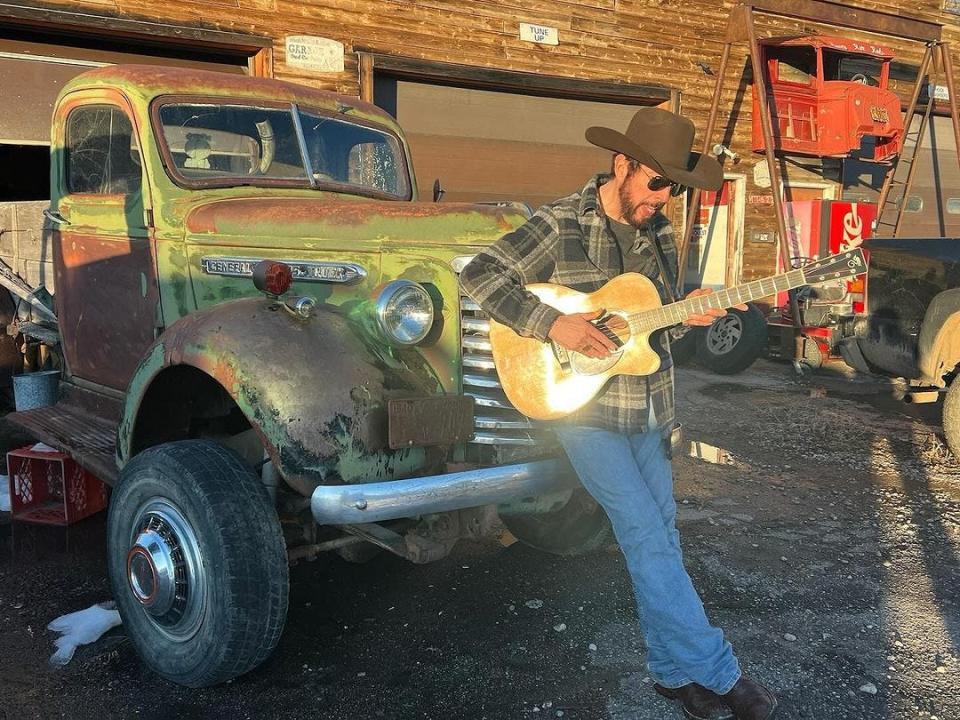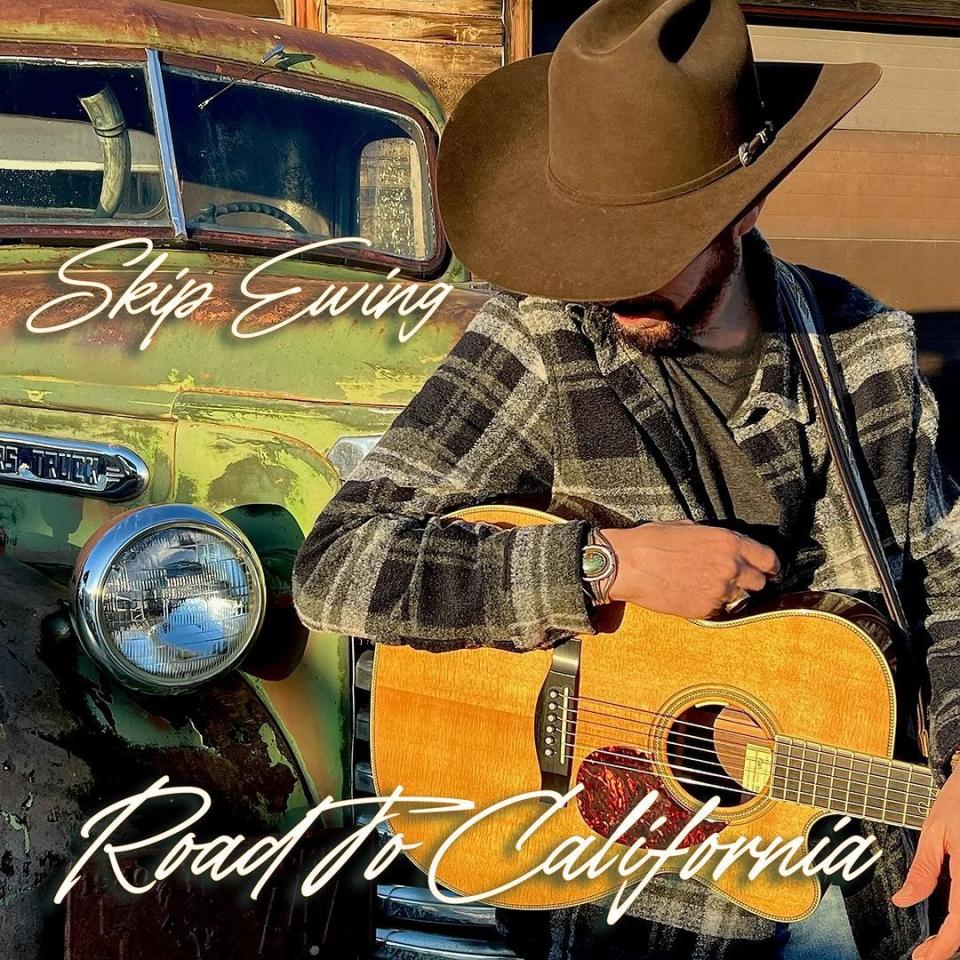Singer-songwriter Skip Ewing on his latest album and influencing ERNEST and Lainey Wilson
Thirty-five years into his mainstream country music career as a singer-songwriter, Skip Ewing is as interested as anyone by how pop culture's fascination with the genre's 1990s era continues to sustain itself.
However, that's not why the performer, who had three Top 10 Billboard country chart singles on his first two albums at the beginning of the 1990s, released his 10th studio album, "The Road to California," on April 25.
It's also not because both ERNEST and Lainey Wilson have — singularly and as a tandem — released in the last six months their versions of "I Would if I Could," a song Ewing penned along with Country Music Hall of Famer Dean Dillon three decades ago.
Timeless hit-making

Back then, Dillon, like Ewing, had experienced some success as a solo artist, releasing five Top 40 country singles between 1978 and 1993. However, as a songwriter, he was renowned for co-writing David Allen Coe's classic "Tennessee Whiskey" (later recorded by George Jones and Chris Stapleton), as well as George Strait's "The Chair," among many other others.
As for Ewing, his No. 1 hits include Clint Black's "Something That We Do," Kenny Chesney's "You Had Me From Hello," Collin Raye's "Love, Me," Diamond Rio's "I Believe" and Bryan White's "Rebecca Lynn," "Someone Else's Star," and "I'm Not Supposed To Love You Anymore."
Ewing explains to The Tennessean that he appreciates how country music's history is primarily identifiable as "commercially popular music that is rooted in a depth and wealth of ancestral and historical traditions."
Even deeper, he feels those traditions paired well with who he wanted to portray himself as via his artistry as a largely lyrically driven creator.
'Road to California'

Ten albums into his career, "Road to California" finds Ewing pairing his writing with a dream group of session musicians whose grouping offers a depth of timelessness to his work that warms the ear.
He refers to his in-studio interplay with creatives like Country Music Hall of Fame drummer Eddie Bayers, Country Music Association award-winning fiddle player Jenee Fleenor, veteran Muscle Shoals and Nashville keyboard player Steve Nathan, and Randy Travis' longtime producer Kyle Lehning as a "sharing of energies and a breadth of ideas" more than anything else.
"All of us breathing the same air and developing ideas reflects a joy for the making of music that complements their (massive) talent," Ewing says.
He's not looking for radio hits with album No. 10, either.
A dozen years ago, Ewing likely felt successful enough to semi-retire from his Music City grind. Perhaps sensing the forthcoming onslaught of songs inspired as much by the beats and social media engagement numbers that underpinned their appeal as by the parties they soundtracked, he uprooted himself from Nashville to study horses in Wyoming.
Thus, for "Road to California," Ewing aims to "celebrate and illuminate joyous and vulnerable moments of our shared humanity" via "masterfully crafted" work developed via a journey best described as a re-self-actualization of sorts.
The album's title track is an ode to "messing up in a messy relationship because what served as a cocoon of protection from something bothersome evolved into something that also didn't allow you to grow stronger than what was already bothersome."
"Road Dog" arrives via a bluegrass riff played while observing his 100-pound, white-haired, mixed-breed Pyrenees leaving its hair on his pickup truck's upholstery and pawprints on the window.
'Believable passion and true vulnerability'
Ewing says the album presents a "diverse set of songs that endeavor to understand the human condition uniquely."
He is humbled that his album release coincides with having artists responsible as vocalists and songwriters for songs with 50 million streams and somewhere in the range of two-dozen No. 1 hits cutting work from an era of his life that occurred three decades prior.
However, he does feel that what has remained timeless, from the 1990s to the present day, is that music listeners regardless of genre care about "songs that hit (them) right where they live, emotionally, in their hearts, souls and spirits."
Offhand, Ewing mentions growing up listening to performers like Billy Joel and James Taylor as inspiring him to arrive in Nashville when cuts like 1987's "Forever and Ever, Amen" by Randy Travis, Garth Brooks' 1989 hit "If Tomorrow Never Comes," and Bonnie Raitt's 1991-released "I Can Make You Love Me" served as examples of what, to him, are "authentically written and delivered" songs that "hungrily (attached) themselves to a broader audience than other popular songs in the genre."
ERNEST and Wilson's desire to use songs like "I Would if I Could" to create a multigenerational link between the country music industry's modern era and times of not-so-distant yesteryear appeals to Ewing because he feels that songs that reflect the excellence of any era when shared strengthen the genre's communal and creative ties.
"Hearing believable passion and true vulnerability in songs moves people," says Ewing.
When asked to summarize the tie that has most profoundly binds his country music career as a charting singer and top-tier songwriter, Ewing crystallizes his point in a sharp and empathetic manner.
"The songs and music that I write and perform feel good because I've skillfully crafted them, as best as I can, for people to discover and rediscover themselves and their purpose."
This article originally appeared on Nashville Tennessean: Skip Ewing's Nashville hits influence ERNEST, Lainey Wilson
